Running a $19MM+ remote company with 82 employees, serving millions of people, Joel shares his greatest leadership lesson.
Every few weeks as part of The Heartbeat, I ask one question to a founder, CEO, or business owner I respect about their biggest leadership lesson learned. This week, I interviewed Joel Gascoigne, CEO and Co-Founder of Buffer.
Joel Gascoigne is the CEO and Co-Founder of Buffer, a social media management platform serving millions of people, and generating $19MM+ in annual revenue. As a remote company with 82 people, Joel shares why transparency helps him be less stressed less as a leader, the value of seeking opposing viewpoints, and why you should go slow to go fast.
Claire: Hi everyone. I’m Claire Lew, and I’m the CEO of Know Your Team, and today I have got a brilliant guest on The Heartbeat. I have Joel Gascoigne, who is the CEO and Founder of Buffer, the social media platform tool that hundreds of thousands of people use all over the world, including us here at Know Your Team.
Claire: Hi everyone. I’m Claire Lew, and I’m the CEO of Know Your Team, and today I have got a brilliant guest on The Heartbeat. I have Joel Gascoigne, who is the CEO and Founder of Buffer, the social media platform tool that hundreds of thousands of people use all over the world, including us here at Know Your Team.
Joel is someone who I have really respected and looked up to for not only the tremendous success in building a company that does over $19MM annually in revenue, has 82 employees, is remote first, but just very much in the way you’ve been I would say thoughtful and radically transparent in how you’ve run the company, Joel, and I think folks who know you and follow Buffer are always pleasantly shocked by that transparency. So, excited to open the book even more today and ask you this one question about leadership.
Joel: Yeah. Thanks Claire. I’m really excited to chat. Been following everything you’ve done for a long time, and these interviews I feel are super valuable, and all the content that you’ve put out there as well. Yeah, I hear about Know Your Team and you from people in my team, like all the time as well, and how useful this information is. Thanks for having me. I’m excited to chat.
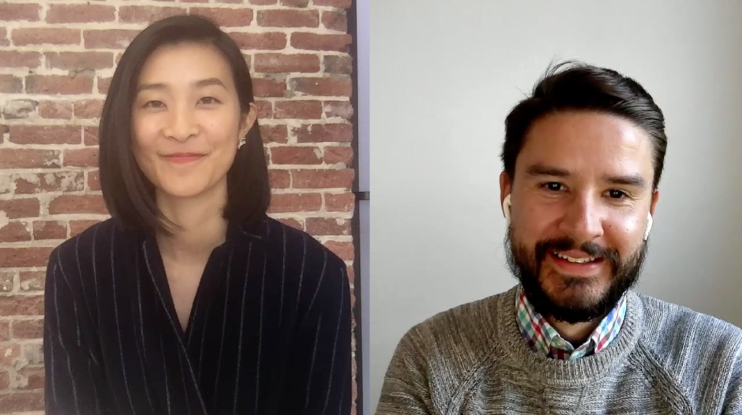
Claire: Thank you. Awesome. Well, okay, Joel. Here’s the question that I’ve been asking leaders that I admire, and it’s what one thing that you wish you would have learned earlier as a leader?
Joel: It’s a big question. I feel like there’s a couple of things that come to my mind. It feels hard to maybe narrow it down, but I’ll start with one and then we can potentially…
Claire: We can talk about them all, as well.
Joel: … touch on the others. Okay. Cool. I think the first one for me would probably be that leadership is individual in some ways, in the sense that you can shape it to be the right thing for you, that fits like a glove for you. I feel like it’s easy to go out there and read about what you should do as a leader, this, and this, and this.
But I think one key thing that I wish I’d known earlier is maybe to also know that it’s important to look in myself and reflect deeply inside, and know what is the right style or approach for being a leader, being a manager, for the direction for the company, and all those types of things. I think that’s probably the key thing that comes to mind with that question, and it’s a very delicate thing, right?
Claire: Yes.
Joel: Because there’s a lot of things that you can improve and there’s definitely great information out there. It’s just also shaping that to be the right direction for you to go, or the right way to improve yourself in order to get good results, but also feel really great about where you’re going, and taking things as well.
Claire: Absolutely.
Joel: I don’t know if that makes sense.
Claire: It makes total sense. Now, I’m over here nodding, because I think there is such a pervasive undercurrent, even in our culture, about the archetypes of what a leader is, what they say, how they act, and it’s refreshing to hear that you wish that a lot of that doesn’t necessarily need to be listened to or paid attention to. I’m curious, Joel, when did that realization happen for you? Was it a conversation? Was it something that happened in the company? Was it a more recent realization, or was it something earlier when you were first starting Buffer and building the team out that you noticed?
Joel: I’d say it’s probably come up multiple times, and I think it’s maybe a few years in to Buffer probably. For context for people, I’ve been running Buffer for eight years now, so it’s over eight years since I started it. I think it’s also one of those things for me where maybe it’s related to my own personality or things I know about myself, where it’s easy for me to, I think self-confidence is an important thing as a leader as well, and having that conviction.
Depending on what your natural leaning in, for me I think I can end up doubting myself more than I maybe should.
I think that’s where there’s been times along the way, I think generally with Buffer, we’ve also done things our own way. I guess that’s one of the things people would say about us, which I’m proud of, but I think even though people would from a high level say that, I feel personally for me, there’s been points where I’ve still deviated from what is maybe the best path for Buffer, that aligns with myself and what will be fulfilling for me over time, and also maximize the chances that I can make Buffer a success, because it aligns with my own life values and philosophies and things.
Joel: There’s definitely been moments where I feel like I’ve been a bit offtrack, all along the way probably.
Claire: Yeah. I can totally, again, I’m nodding my head over here, Joel. I am curious, and I’m sure folks who are listening to this, what have been those offtrack moments? Or is there one that maybe comes to mind?
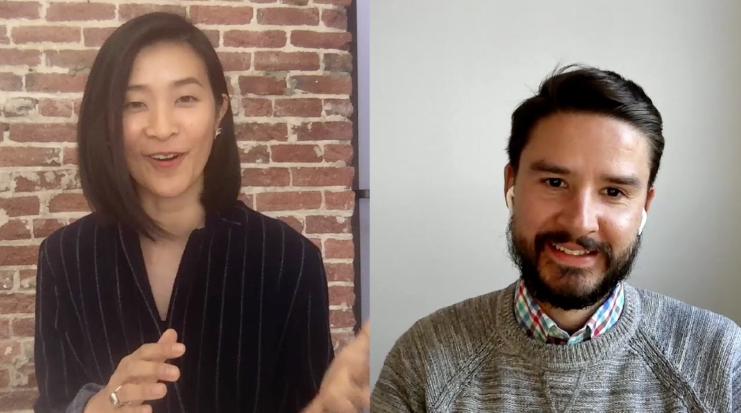
Joel: Yeah, I think one is probably getting … One clear one is getting too much onto the growth track of the company, onto maybe the VC. Growing for the pure reason of growing. I think there’s a lot out there that says the definition of a startup is growth, or it’s like a lot of these things out there. I just realized for me that doesn’t align, that doesn’t resonate for me, but I think the more you consume and take in and read of things, if you start reading too many of those things like that then it can get in your head and then you can convince yourself that you need to be on that side of just pushing for that.
That’s one example. I think the thing that helped me get out of it a little bit is reading or watching presentations of things from a wide range of different types of founders or companies, and at least for me, what resonates often is more the non-traditional approaches to building companies, and that’s I felt, has given me a nice balance. So then I can, I feel like the default is this very clear track and so for me, just to make sure I can seek out and find these other ways of building companies, feels like it gives me this balanced viewpoint, but then I can decide, “Okay, what’s the right thing above that?”
Maybe that’s also another thing I wish I’d known, is like that:
It’s great to have conflicting advice, because then you have to make your own decision. Then then you have to look within yourself and decide what is the right thing for this company, for the culture, personally for yourself, as well.
Claire: Absolutely. I love that. Insight is counterintuitive as it is, because we often as leaders, gather expert opinions. It’s either to confirm or disavow something in our head that we are learning towards. I’ve noticed this in myself that to your point, it’s very easy also to seek out advice that’s going to also affirm each other. It’s very confusing when the advice conflicts. You’re like, “Wait, I’m trying to solve a math a problem” and the elements are all there.
Joel: It seems like it’s not helpful, but it really is, I think.
Claire: Right. I love this suggestion to actually proactively seek out advice that goes against each other. I love that. I think for folks listening, one thing that they might be curious, that I’m curious about, is the discernment of that advice when it conflicts, and I’ve had this conversation with a lot of different CEOs and founders. Is the default right answer to always trust your gut in that situation when the conflicting advice, or when the advice conflicts?
Or, how do you choose which decision to make? How do you carve your own path when you’re given all the options? What do you as Joel, how do you map that out for yourself? I know it’s very context dependent. It really depends on the situation that you’re faced with, but broadly speaking.
Joel: I think this is a really good question because I think it almost goes back to my first answer which is leadership is individual, in the sense of what’s your style? Because if you’re asking me how would I figure that out, I learned time for myself, that I need to go away and have space to reflect on things. I want to go in and hear these conflicting pieces of advice, two different people, or more different people, groups of people, and whatever it might be.
Whether it’s leadership team or advisors or people, and then for me, at least for me personally, the state I’m in when I’ve just heard it is that it’s kind of like a cloudy glass of water. It’s just all shaken around, and I personally have to go away and let that settle a little bit, have my own space. I’ve learned for me as a leader, that I really try to avoid making decisions in that moment, in a group discussion, or things like that, which can be a bit unusual because a lot of teams, a lot of companies I think will go into a meeting, want to discuss something, and come away with a decision, but for me, if I’m the one that is making the decision, I’ll often, does take me a while to figure out.
But I’ll now just say I’m not in the right state of mind to make this call right now, I’m going to go away and think about it, just overnight. It might not take long. It might have taken an hour from being away from that, and then this cloudy glass of water settles, and then I have this clear mind on it. Usually for me, that’s when I have the epiphany of, “This is the right thing.”
I wouldn’t say it always needs to be good. It might be that I go away and get a spreadsheet going and try and figure some stuff out or that kind of thing. It’s interesting because when … My co-founder left the company about two years ago. When we worked together intensely, in some of the key earlier years of Buffer, he’s the opposite. He is more someone that has their best clarity of thought and ideas and things in the discussion, and he wanted to make those calls in that moment a lot of times.
It took us a while to figure out that, “Okay, we just have different approaches here and that’s fine, and we’ll find a way to make it work.” We ended up starting to have two meetings instead of one for things, so we’ll have one, bounce ideas around, shake it all up, “That’s great, we need to do that” and then go away, have a gap between them and then come back. I’ll usually, when we started doing that effectively, we found that I would often come back with some new idea or connecting dots in different ways, or I’ve had this new thought, that we just wouldn’t have had otherwise if we just made the call and moved on.
Yeah, maybe that’s an example in itself of like you need to know yourself a little bit as a leader, maybe you might love those heated discussions and making a call right there and then.
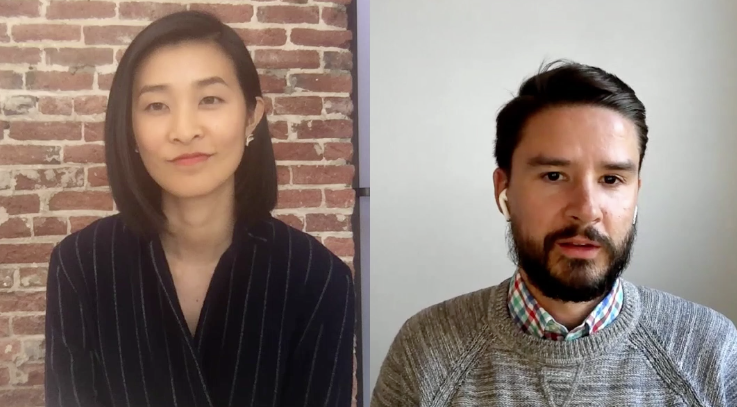
Claire: Absolutely. No Joel, so I love, I so appreciate that response because it shows your willingness to even expand that viewpoint of having conflicting advice, even to your approaches, right? You like an integrated approach, you like a different approach. You liked the fact that your co-founder had a different way of making decisions, more in the moment, you needed to take some more space, and I think it’s so interesting how comfortable you are in having conflicting styles to be working and coexisting in the same space.
I also think, by the way, that I personally have found that there’s this phrase that muddy water clears when you leave it alone. The more you stir it, the foggier that it gets, and I believe the mind works similarly around decisions. Well, at least for me. It sounds like for your co-founder, that wasn’t the case.
Joel: Yeah, maybe not to everyone. But certainly for me. Or it might be that for him, he needs to clear his mind regularly, like as a general practice, but in the moment, maybe he needs to do that regularly in order to be in the good state for those meetings, or that kind of thing. Yeah, he would have some of his best ideas in a very collaborative setting, whereas for me, I would maybe have a great discussion but over time, that would actually drain me and then it’s when I do then let myself go away and just reflect by myself that I would have some of the best ideas, and come after the discussions.
Claire: I also think that your description of your style and your former co-founder’s style goes to show your point again, of the individual nature of leadership. I’m wondering for you Joel, what has really influenced your own individual take on leadership? We are born into this world without being completely untouched. All of us, each of us, are shaped and influenced by different things. I’m curious for you, what’s most influenced your style of leadership, or your views on leadership?
Joel: Yeah. That’s a really good question. I think there’s many different influences, but it probably is these companies going their own direction and just dig in and read about them. I think Basecamp would be an example of something like that. MailChimp maybe would be another one. I think there’s also more beyond the pure tech sphere, I think there’s also companies such as Semco.
Claire: Of course.
Joel: I’ve read both of Ricardo Semler’s books and massively influenced by those.
Zappos maybe another one. Recently I’ve been really getting interested by more cooperative models for companies, or employee ownership models for companies as well. Companies like Organic Valley which is actually a co-op in the US, and then there’s a company called John Lewis in the UK, and I’m from the UK so that’s one that’s been interesting to come back, just in the last year or two.
It’s a company that has a very, it’s very well regarded. It’s very respected in the UK and it’s been running a very long time. It’s a big department store, but every single employee is technically a partner and actually owns part of the company, and then they do a profit share at the end of each year. They’re famous for based on the profits of the year, they will determine what percentage of salary, what percentage will be a profit share.
They’ve been through lots of ups and downs so they’ve had some years where it’s not been a great outcome, but yeah, just digging into their model has been fascinating as well. They have a lot of details online.
Claire: Totally. I similarly think that looking at stories, just what’s been done, there’s so many answers and so many sources of inspiration there. One thing that, as I mentioned in the introduction, Joel, that you are known for and that Buffer is known for is transparency, and revealing, I mean actually prior to this interview, I found on Baremetrics that I could literally look up your annual run rate, and look up what your percentage of churn you have every month.
It’s quite unconventional. Well, it’s conventional and unconventional because what I will say, as I feel like it is extremely trendy these days to say that you are transparent as a leader, and to say that your company is open. It’s become in my opinion, almost a little cliché. That’s one I think arc that we’re seeing. The other arc that I think we see is almost a backlash to that, so I’m sure you get this all the time about, “That would never work in my company. Open book financials is a disaster. Saying what everyone makes in terms of salary.”
I just really want to dive into first of all, where does this urge to be so transparent come from? Let’s start there. Why do you do it, Joel? why?
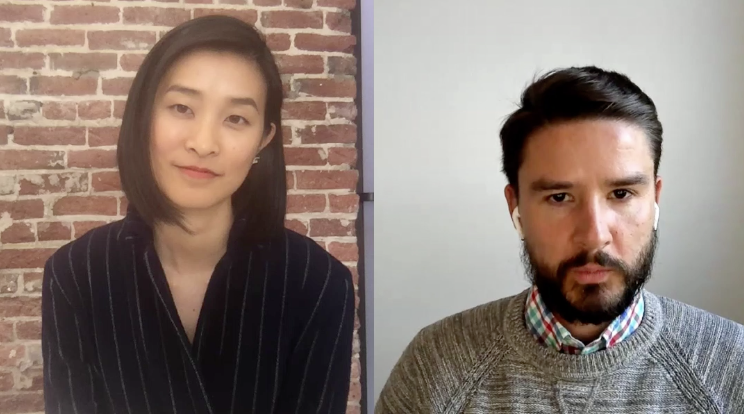
Joel: It’s a good question.
I feel like there must be several different things that have contributed to that in my childhood, or whatever it might be. It’s also, I think it’s worth noting that it’s one of those things that it’s totally possible to do in a small way, and then to build up, and get further and further into it, and then feel like, “Wow, this is so great so we’re going to keep going here.”
I think that’s happened a little bit where it’s not necessarily the right off the bat, I was thinking eight years ago this is going to be this transparent and everything. But we’ve had so many great outcomes and impacts of that. There’s one experience I had when I was doing college, university in the UK, and afterwards, I was an intern, doing some work freelancing, and then afterwards I worked three days a week for them.
I almost was going to work full time but I was wanting to do my own projects, so I managed to just work three days a week, but I was pretty involved with this company. I was working for them. They were a very small company, maybe 15–20 people. In the time I was there, essentially they went bankrupt towards the end of … I was doing contract work, but there was others who were employed and as things got worse and worse, everyone knew, but nothing was really being shared too much.
This is a 15–20 person company, and people just didn’t know what’s the actual situation, what’s really going on? For whatever reason, the owner, the CEO I guess, managing director they’re usually called in the UK, she must have felt like it was better to hold onto that information and take that burden completely on herself.
But the outcome was just so bad. It hurt so many people, a lot of people without pay for three to six months, and then just got nothing at the end of it. That’s one key experience that was maybe just a year or two before I started Buffer, which I think definitely had an impact, made me feel like I don’t know, I guess I reflected on and thought, “Well, if someone knew, maybe we could have all come together and tried to make this happen and turn it around.”
But no one even had that chance because no one really was given the full information. In a way, I think what I’ve done with Buffer, a lot of times it’s just go to the other extreme which is everyone should have … I’ve also heard this phrase or this quote which is, “If you want people to be able to make the same decisions that you would make, then they need to have the same information that you have.” Generally you’re going out there, you’re trying to make people entrust you, that you can actually do things better than you, so how on Earth can they do that if they don’t have the same information?
That makes it sounds very obvious and easy and clear, and like you say, it’s a bit of a cliché maybe, transparency, but I think what I’m really talking about is actually following through with that, going all the way and regularly sharing the bank balance with the team, and all the financials.
We decided to also share a lot of that publicly as well, but it just keeps us accountable, I think. Actually, it’s quite liberating for me. It actually lifts a few things off my shoulders.
I think founders and leaders and CEOs, it’s stressful enough and I’ve had some real low points on the journey. I think it would have been even harder if we didn’t have this transparency.
Claire: I think that’s probably extremely surprising, I think, for me to hear that and for other folks to hear that, that you feel your job is easier, because you are pulling back and sharing the burden more. To your point, the managing director that you were mentioning, she didn’t want to share the state of the company because of fear, because of potential ramifications and backlash. It’s so interesting and admirable, Joel, and I think it probably says a lot about you personally, that your own reaction is actually quite different, that it actually relieves a lot of stress for people to know what you know. Yeah, go for it.
Joel: I wouldn’t say it’s easy.
Claire: Of course not.
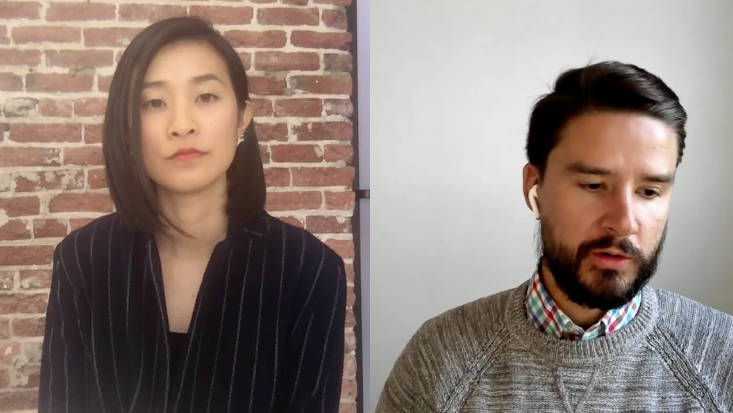
Joel: And I think there’s still times where we’ve fallen short of that a little bit, but I still come away, even in those moments where we go through a really tough patch and I come away afterwards thinking, “Maybe I could have shared more.” A lot of times now it’s because we’ve made this commitment and I feel like I really want to stay true to it, transparency.
But it also, I’ll sometimes have the reflection and think, “It maybe could have been easier” or not necessarily easier, but a better outcome maybe for the team, for morale, or everything. ’Cause even if you get through it but you’ve not shared that with your team. The other thing is, I got a really great piece of advice from Tony Hsieh from Zappos one time, which was he talked about the importance of building resilience in your team.
I think there’s an interesting balance of you want to make sure people feel safe and comfortable and everything, but you also I think, it’s worthwhile including the team and exposing the team to some of the really tough decisions, even if maybe they’re not having to make those decisions, but just to transparently share them, and make them aware of the big choices going on right now.
I think that in itself is an act that can build resilience and help the team be able to handle more things that might be thrown our way as a company.
Claire: Totally. I feel as though the contrarian who’s watching this would say, “Joel, that’s great for your company, and Tony Hsieh gave you that advice, that’s great for Zappos, but for my company, my employees came to do a job, 9:00 to 5:00, there’s some folks who just choose to actually be an employee because they don’t want to have to deal with those issues. They don’t want to have to think about the possibility of laying off 10 people. They don’t want to have to make complex, high stakes decisions, based off what’s changing in the market.” What would you say to someone who feels as though they like the idea but the practicality to them is not quite there? What’s your response to that?
Joel:
I feel like you’re treating people as kids with that view, because people have to make these somewhat challenging decisions all the time in their lives, and then we’re all coming together as a company.
I think sometimes, especially as a company grows, and you have more hierarchy and bureaucracy and things, you end up really splitting off the different roles and having really a lot of specialization and things, it’s really easy for things to become siloed, and people on one side of the company to not have at all any of the information from the other side, or from the top and things.
But I think it’s a way, that to me is a way to make yourself feel okay about not sharing more and I just think, actually people can handle it. Like, we’re all adults here, we’re coming together, so I believe that, and I also believe people want it. It can be hard, but I think that’s where building resilience comes as well. You can start small, you can grow that and things, but yeah, I just think, I also think if you would go into any company and speak with someone that’s not in the leadership team in some way or something, someone that’s in a role in customer service or in engineering or whatever it might be, I think if you were to ask them, you would generally always find that there’s decisions being made and they don’t know why.
They don’t have the context and they’re questioning them, and then there’s resentment building up in the leadership team, and I think that’s one of the biggest challenges as a growing company, and we feel that a little bit. Now we have over 80 people and I think that’s going to be one of our biggest challenges, is how do we keep that trust in the leadership team, what we’re doing? That’s I think another fundamental belief I have, is that it’s really important to regularly communicate the why of decisions.
For me, anytime that a decision’s being made, my ideal scenario is that anyone can follow that back to understand why.
I often think about the sharing why is more important than sharing what. The direction is important for people to know where we’re going, but I almost focus on the why, which is like what are all the different pieces of context, information, data, everything, that’s in my head that’s led me to make this decision of company direction, or a specific decision on level of benefits we provide, or compensation, or whatever it might be?
I think it’s really important that people have that actually information and the context there, because to me, the ideal scenario I aim for is that people could actually come to that same decision themselves, or at least understand and agree, “Okay, this is all taken into considerations that have been made and this is the decision that we landed on.” Whereas I think in a lot of companies, you have decisions being made all the time, or policies put in place, and passed down, that eventually you get so far, so many layers of that, that at some point you have these things going on that people are asking, “Why? Why is this?” And you can’t answer it. It gets lost.
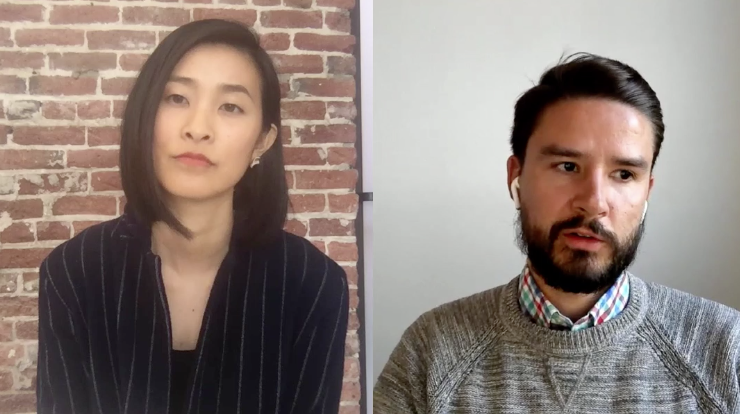
Claire: Absolutely. I’m going to make an assumption here, actually. I think everyone who’s watching this is also nodding their heads, going, “Joel, yes, totally with you. Transparency builds trust. People need the same information to make decisions. Yes, we shouldn’t treat our employees as kids,” right? I think people would nod their heads to that and people would nod their heads and go, “Absolutely. We need to communicate the why, we need to show the direction of the team” and so here’s the thing. Why don’t we do it as leaders then? Why is this so hard and what advice do you have, Joel, to actually put this stuff into practice?
I feel this is so true of most leadership concepts, which is it’s obvious when you read it or when someone tells you, but when you go to actually implement it, it’s so difficult. Talk to me about practically, what advice you have for folks who are going, “Okay, I want to start doing some of those things.” What tips or what thoughts do you have there for me?
Joel: Yeah, I think it’s really hard to do.
Claire: It’s so hard.
Joel: You can hear it in the theoretical sense, like we’re talking about it now. When it comes to the practice of it, it almost goes against human nature. It’s really hard to do it.
Claire: How do you do it? How do you remind yourself and hold yourself? You alluded to this, accountable.
Joel: I think this might be one of those examples where it’s like go slow to go fast, where I think for me, I feel like I need to be going just that optimal pace myself with how much do I cram into my week that I’m doing. I need to have enough space that I can actually reflect on things and think, “How does it feel? Is the way we’re approaching this decision or this communication with the team, is it right?”
I think you need to fill that space for yourself, to be able to have the reflection and the realization of, “Oh, this is actually going against some of these concepts.” Then, I think you’ve got to make the time, which is the other thing that can be really challenging in a company that’s growing fast, or just has a lot going on. All small companies feel like really they could do with twice as many people as they have, or that kind of thing.
I think it’s hard to take the time to do some of these things, take the extra time to … It takes more time. It’s more work to be transparent, because you’re sharing the data, the numbers, and you’ve got to explain the context. It’s one of the things I love about transparency is that it forces us to do that. It’s not just about, “Now we’ll just throw out the salary numbers” because the fact that we’re sharing salary numbers with the whole team means now we’ve got to explain our process, our system to come up with salaries, everything, all of that context and it forces us to do that. But all of that takes a lot of time, and I think that’s maybe the other key part, is make time for it and start small.
You don’t have to feel really intimidated by the amount that maybe we do at Buffer. You can start small and just open up a little bit, or share a bit more of your financial results or numbers. Whatever it might be. Just look around, look at the things that you’re keeping private within one time, and within leadership team especially, and think, “Can you share that?”
Claire: Absolutely. I think what you’re describing about taking the time and carving out that time, it’s something that’s been echoed by Michael Lopp, who’s the VP of Engineering over at Slack. He talked about when I had him on the show, don’t be busy. You need the time to watch people, observe, have those conversations, and most importantly to think for yourself. I think time is huge. I love your point about starting small, and providing context also around transparency. Yeah, it’s funny, another guest we had, Des Traynor, one of the founders of Intercom, he talked about this too.
Transparency’s on a spectrum and you have to give context to it. It’s not just saying what someone’s salary numbers are, but being defensible, right?
Joel: Exactly.
Claire: And showing to your point, the why. One thing that I think I’ve found in myself and I’m curious if you would line up on this, or disagree, is I also think it requires actually a really strong internal compass and discipline, and level of rigor to hold yourself accountable to the things that you say you want your company to do, or you like. It’s a deliberate choice here that you’re making, Joel, to focus on the why and to be transparent.
Joel: Yeah, I think that’s true.
Claire: You can either like you said, you can easily come up with almost reverse justifications for being like, “Oh, we’re going to change our mind” or, “We don’t need to go as deep on the why on this.”
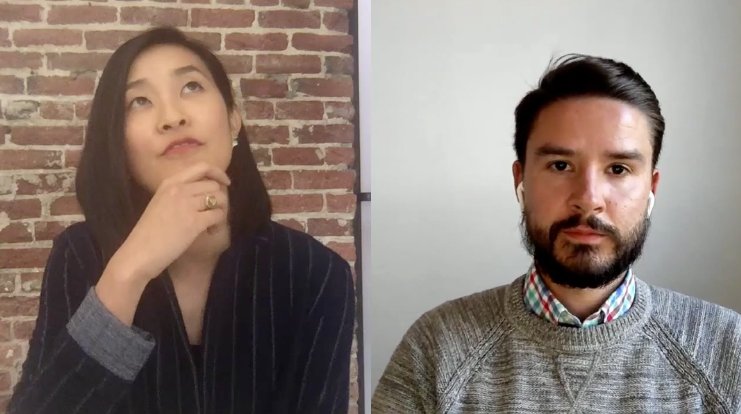
Joel: Yeah. I think that’s also where I would say find the thing that resonates for you and maybe go deeper on that. It might not be transparency or some of these things for other people. I feel lucky in some ways that I’ve found this thing that I do feel like I have this internal compass on, and I feel very strongly about, and it’s not been easy and it’s come with sacrifices I think along the way, and I’ve had a few people tell me that and say, “Wow, I don’t know if I could have stuck to it through that” or made that decision.
We bought out our investors recently. We turned down big acquisition offers, and a lot of it’s been related to these things we’ve been talking about, but I think that’s one of the things that makes the company special I feel like, and it’s one thing that’s a useful thing to do once in a while that I ended up doing, is once in a while just reflect on the trajectory you’re on right now.
If you follow that through, a year or two years, do you want to be part of that thing? Is that still exciting to you?
I did that a few years ago and I wasn’t too excited about … I felt like I could wake up one day and not feel so excited about being part of the company with that trajectory it was on. I think that’s a really useful exercise and just helps you maybe to determine what are those things that you feel strongly about, and that’s why I think it’s worthwhile finding your own path. Even if your own path happens to align with the path that is traditional out there, or whatever it might be, that’s great.
If it’s the one that you feel aligns for you as well, but I think that’s the thing that I’ve tried to step away, reflect on, and spend time thinking about, and just feeling really comfortable and happy and confident with, “This is the direction I want to take things.”
Claire: Absolutely. That is so encouraging, Joel to hear, and to your point, it only comes with time and with stepping away. Thank you. And speaking of time, thank you so much for your time on having this conversation. There’s so much that I learned, I know I’m going to rewatch this back, I’m sure take a bunch of notes. I know for everyone who’s watching as well, they learned a lot too, so thank you so much for being here, Joel.
Joel: Yeah. Thanks so much, Claire. It’s been a lot of fun to chat.
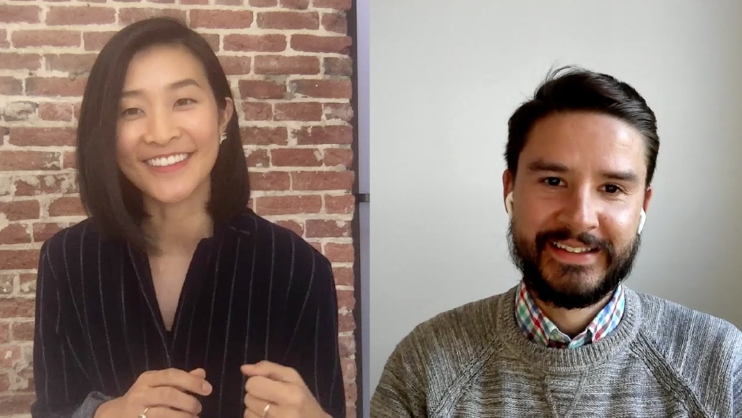
If you appreciated this interview with Joel, check out all our Heartbeat interviews with leaders…